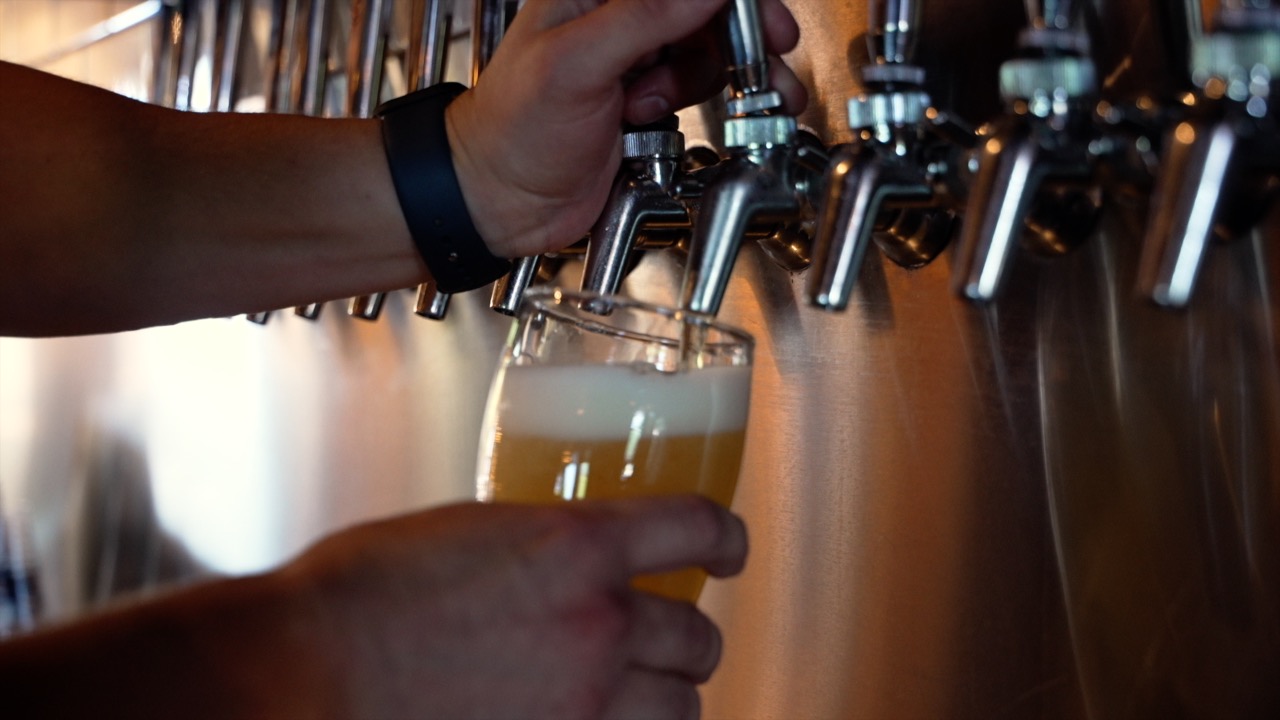GRAND HAVEN, Mich. — Ottawa County shares a border with Lake Michigan but despite 30 miles of shoreline, water shortages and dry wells remain a recurring problem.
County officials say about one in four residents get their drinking water from wells that tap groundwater aquifers. Many residents, including Micah Dickinson of Restoration Earth, have discovered those systems are running dry.
WATCH Save water, drink beer: How beer is addressing Ottawa County's groundwater issue
“It’s almost unbelievable,” Dickinson said. “You hear it, but it’s hard to believe.” He said lawns and irrigation systems struggle during dry periods. "Taking care of that lawn just became a chore. It would start to burn out and the irrigation system couldn't keep up."
Paul Sachs, director of the Ottawa County Department of Strategic Impact, explained that there are two places to get water from beneath our feet. One is the glacial system and the one below that is the sandstone system, which is the primary aquifer system residents get their water from. Sachs said that system is disconnected from Lake Michigan and as more water is taken from the system, less and less is available over time.
"What you pump out doesn’t go back in and so those water levels are dropping," Sachs explained. "And that glacial material there’s not enough of it geologically for a sustained drinking water supply so you need to go down to that deep system."
County officials are encouraging residents to be mindful of water use and to consider replacing water-hungry grass with native landscapes that require less irrigation.
“When you’re pumping thousands of gallons of water for your landscaping and your turf grass, that’s a really big challenge,” Sachs said. “It’s a behavioral shift, a mindset change that people need to grasp, understand and implement.”
With hopes of helping raise awareness about the issue, Restoration Earth and Oddside Ales have partnered up to create a new beer using a native plant. The beer is called The Bergabowski and it's brewed using wild bergamot, a drought-tolerant plant that is native to the area.
“We were just knocking back a beer or two and he mentioned, ‘I wonder if we can actually make a beer with a native plant,’” Oddside Ales General Manager John Motz said. “We got to brainstorming. He brought up bergamot, we dug through the flavor profiles and decided to roll with that.”
Motz said the beer has prompted conversations about native plants. “We got some people to try it and then dive into the native plant conversation,” he said. “Almost everyone I spoke to was already aware of this. Maybe not the gravity of it, but they heard little snippets here and there.”
Dickinson said he hopes native landscaping becomes more mainstream. “Something we’re also hoping happens is that this just gets a little bit more mainstream and it can become something that’s as common as turf grass — offered as another way to take care of your lawn,” he said.




